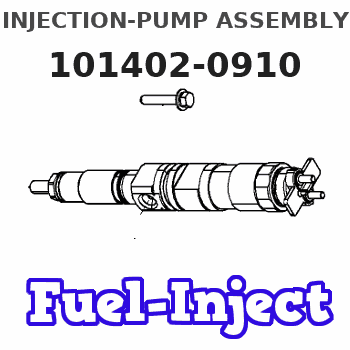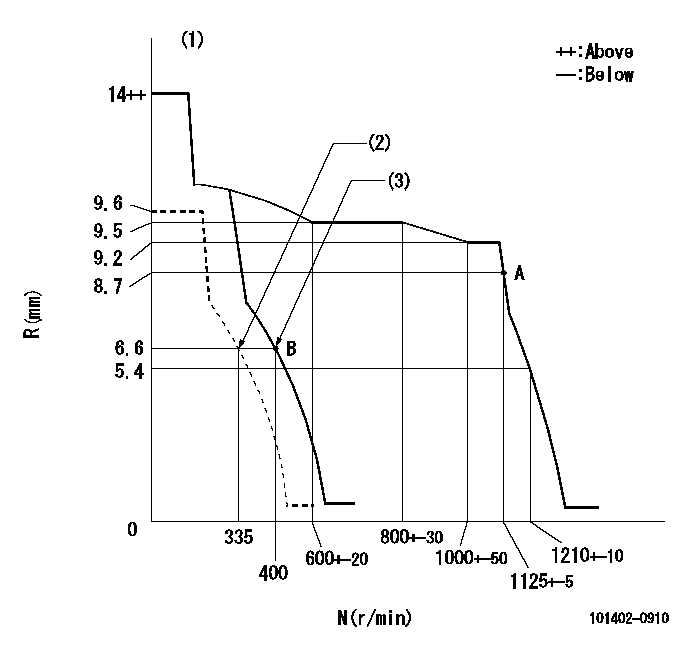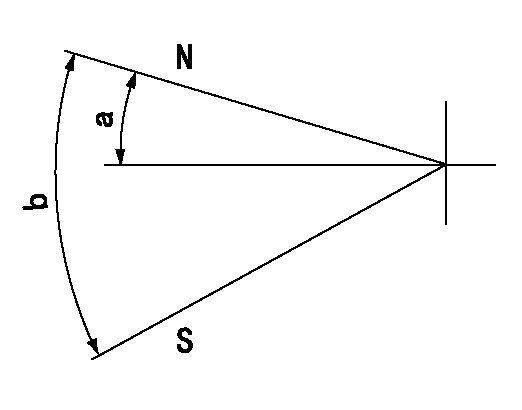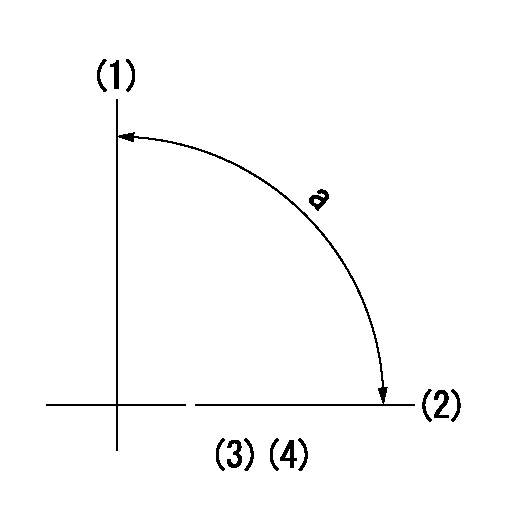Information injection-pump assembly
ZEXEL
101402-0910
1014020910
ISUZU
8943128930
8943128930

Rating:
Cross reference number
ZEXEL
101402-0910
1014020910
ISUZU
8943128930
8943128930
Zexel num
Bosch num
Firm num
Name
Calibration Data:
Adjustment conditions
Test oil
1404 Test oil ISO4113 or {SAEJ967d}
1404 Test oil ISO4113 or {SAEJ967d}
Test oil temperature
degC
40
40
45
Nozzle and nozzle holder
105780-8140
Bosch type code
EF8511/9A
Nozzle
105780-0000
Bosch type code
DN12SD12T
Nozzle holder
105780-2080
Bosch type code
EF8511/9
Opening pressure
MPa
17.2
Opening pressure
kgf/cm2
175
Injection pipe
Outer diameter - inner diameter - length (mm) mm 6-2-600
Outer diameter - inner diameter - length (mm) mm 6-2-600
Tester oil delivery pressure
kPa
157
157
157
Tester oil delivery pressure
kgf/cm2
1.6
1.6
1.6
Direction of rotation (viewed from drive side)
Right R
Right R
Injection timing adjustment
Direction of rotation (viewed from drive side)
Right R
Right R
Injection order
1-3-4-2
Pre-stroke
mm
3.4
3.35
3.45
Beginning of injection position
Drive side NO.1
Drive side NO.1
Difference between angles 1
Cal 1-3 deg. 90 89.5 90.5
Cal 1-3 deg. 90 89.5 90.5
Difference between angles 2
Cal 1-4 deg. 180 179.5 180.5
Cal 1-4 deg. 180 179.5 180.5
Difference between angles 3
Cyl.1-2 deg. 270 269.5 270.5
Cyl.1-2 deg. 270 269.5 270.5
Injection quantity adjustment
Adjusting point
A
Rack position
8.7
Pump speed
r/min
1125
1125
1125
Average injection quantity
mm3/st.
53.1
51.6
54.6
Max. variation between cylinders
%
0
-2
2
Basic
*
Fixing the rack
*
Injection quantity adjustment_02
Adjusting point
B
Rack position
6.6+-0.5
Pump speed
r/min
400
400
400
Average injection quantity
mm3/st.
8
6.6
9.4
Max. variation between cylinders
%
0
-14
14
Fixing the rack
*
Test data Ex:
Governor adjustment

N:Pump speed
R:Rack position (mm)
(1)Target notch: K
(2)Set idle sub-spring
(3)Main spring setting
----------
K=7
----------
----------
K=7
----------
Speed control lever angle

F:Full speed
I:Idle
(1)Stopper bolt setting
----------
----------
a=20deg+-5deg b=4deg+-5deg
----------
----------
a=20deg+-5deg b=4deg+-5deg
Stop lever angle

N:Pump normal
S:Stop the pump.
----------
----------
a=19deg+-5deg b=53deg+-5deg
----------
----------
a=19deg+-5deg b=53deg+-5deg
Timing setting

(1)Pump vertical direction
(2)Position of gear mark 'CC' at No 1 cylinder's beginning of injection
(3)B.T.D.C.: aa
(4)-
----------
aa=18deg
----------
a=(90deg)
----------
aa=18deg
----------
a=(90deg)
Information:
A pressurized cooling system serves two purposes. First, it permits safe operation at coolant temperatures higher than the normal boiling point; thereby, providing a margin of cooling for those intermittent peak loads. Secondly, it prevents cavitation in the water pump and reduces the possibility of air or steam pockets forming in the coolant passages.Many times engine overheating is caused by failure to make simple systematic inspections. Visual inspections should be made before testing. Coolant Level: Check the engine coolant level with engine stopped and cool. Always release cooling system pressure before checking. Fill to the proper level with water, as free as possible from scale forming minerals, not softened water. During freezing weather add sufficient permanent type antifreeze to the coolant to prevent freezing. Make up water added without the proper proportions of inhibitor can cause excessive mineral deposits. (Use inhibitor as recommended on container.)Most commercial antifreeze solutions contain rust inhibitors, however, it is recommended the adding of Caterpillar Coolant System Inhibitor to glycol base antifreeze if protection is for temperatures above -20°F (-29°C). If protection is for temperatures -20°F (-29°C) or below, do not add inhibitor.
Inhibitor contains alkali. Avoid contact with eyes. Avoid prolonged or repeated contact with skin.
Add coolant slowly to a hot engine (engine running) to prevent possible cracking or distorting the cylinder heads.
If a loss of coolant is noticeable, check for leaks in the system. After filling the system, start the engine and add coolant as necessary to maintain a full system during engine warm up. Running the engine at operating temperature will permit the temperature regulator to open and allow the coolant to circulate and purge air from the entire system. Some systems will normally loose some coolant during initial warm up cycle. Cleaning the Radiator (External): Clean dirt and trash from between the tubes of the radiator. Accumulation of debris may cause excessively high operating temperature. Wash, brush or blow the dirt out with whichever method is available and most effective. When cleaning with air do not exceed 30 PSI (2 kg/cm2). Cleaning the Cooling System (Internal): Clean the cooling system periodically. Mineral deposits can cause serious engine damage by retarding the transfer of heat to the coolant. A deposit of lime 1/32 inch thick insulates the same amount as 2 inches of steel, reducing the heat transfer substantially. Loose scale and sediment deposited in the cooling system will reduce circulation, resulting in possible engine damage. To clean, stop the engine when it is at normal operating temperature and drain as quickly as possible. Flush thoroughly, then fill with a solution of 3.2 ounces of Oxalic Acid or Sodium Bisulfate per one gallon of water. Run the engine at operating temperature one-half to one hour, then drain and flush until water is clear. Fill with a solution of .8 of an ounce of Sal Soda per one gallon of water and run the engine ten minutes. Drain, flush and fill with water, adding corrosion inhibitor or the desired amount of antifreeze.
ENGINE DRAIN
Inhibitor contains alkali. Avoid contact with eyes. Avoid prolonged or repeated contact with skin.
Add coolant slowly to a hot engine (engine running) to prevent possible cracking or distorting the cylinder heads.
If a loss of coolant is noticeable, check for leaks in the system. After filling the system, start the engine and add coolant as necessary to maintain a full system during engine warm up. Running the engine at operating temperature will permit the temperature regulator to open and allow the coolant to circulate and purge air from the entire system. Some systems will normally loose some coolant during initial warm up cycle. Cleaning the Radiator (External): Clean dirt and trash from between the tubes of the radiator. Accumulation of debris may cause excessively high operating temperature. Wash, brush or blow the dirt out with whichever method is available and most effective. When cleaning with air do not exceed 30 PSI (2 kg/cm2). Cleaning the Cooling System (Internal): Clean the cooling system periodically. Mineral deposits can cause serious engine damage by retarding the transfer of heat to the coolant. A deposit of lime 1/32 inch thick insulates the same amount as 2 inches of steel, reducing the heat transfer substantially. Loose scale and sediment deposited in the cooling system will reduce circulation, resulting in possible engine damage. To clean, stop the engine when it is at normal operating temperature and drain as quickly as possible. Flush thoroughly, then fill with a solution of 3.2 ounces of Oxalic Acid or Sodium Bisulfate per one gallon of water. Run the engine at operating temperature one-half to one hour, then drain and flush until water is clear. Fill with a solution of .8 of an ounce of Sal Soda per one gallon of water and run the engine ten minutes. Drain, flush and fill with water, adding corrosion inhibitor or the desired amount of antifreeze.
ENGINE DRAIN